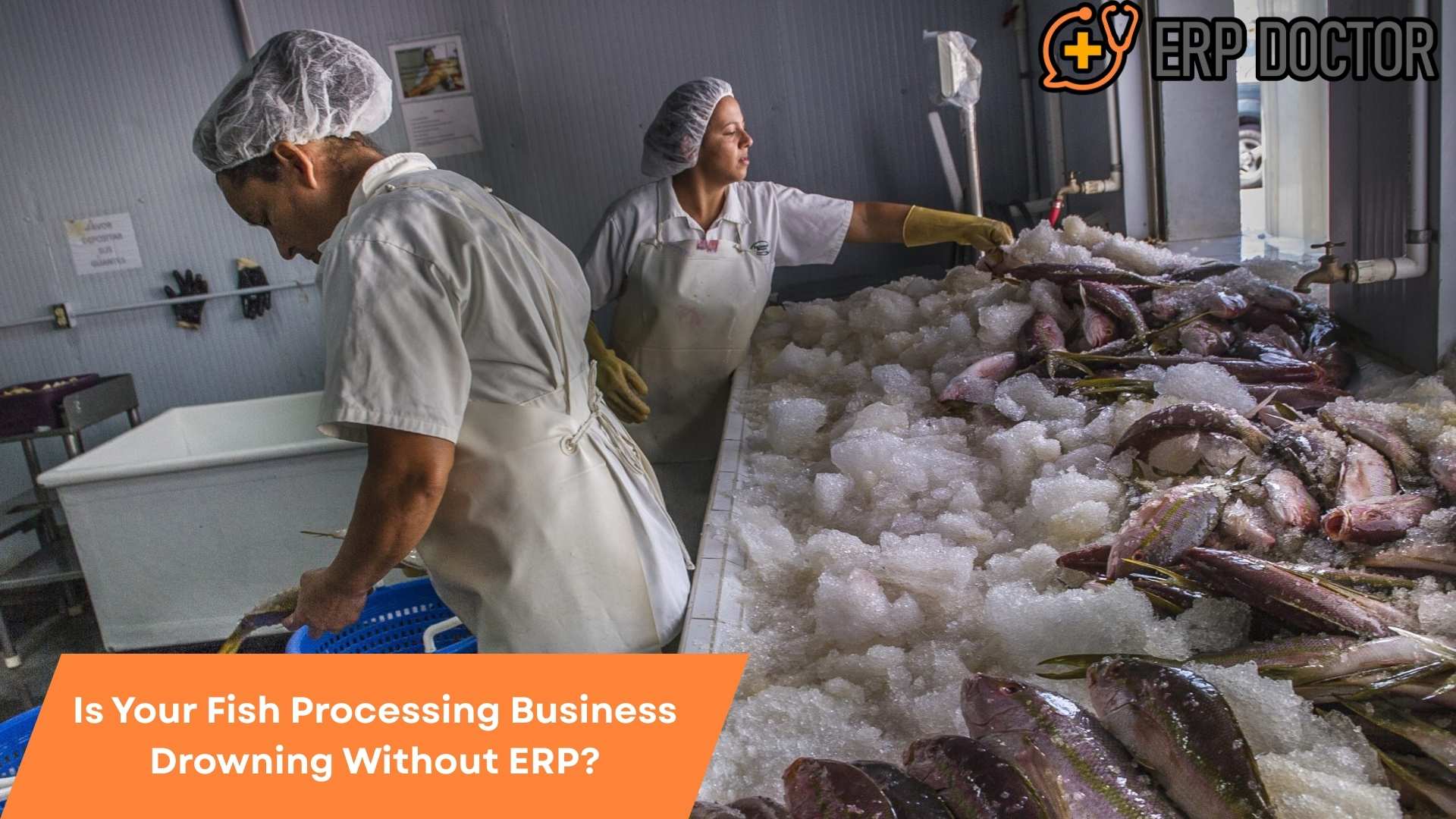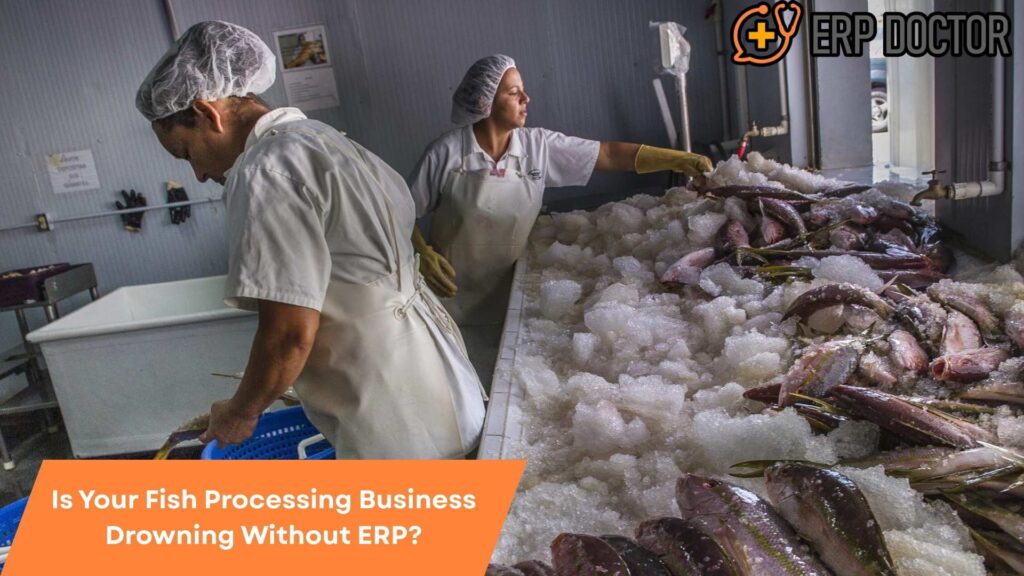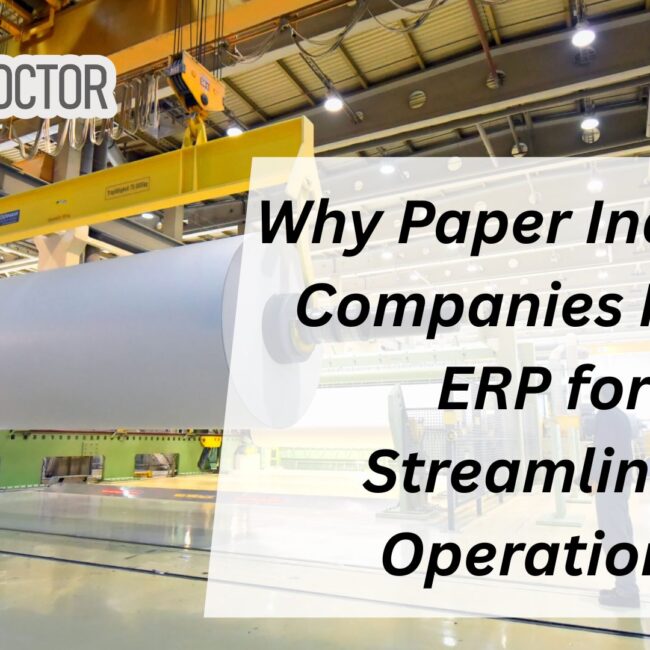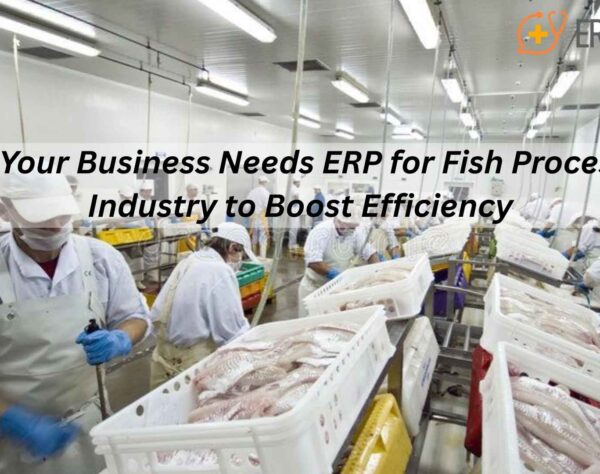
Is Your Fish Processing Business Drowning Without ERP?

Why ERP Is Essential for Keeping Your Fish Processing Business Afloat
The Fish Processing Industry is no stranger to challenges. From maintaining the freshness of seafood to meeting stringent compliance standards, managing supply chains, and optimizing production workflows, fish processing companies operate in a high-stakes environment where precision and efficiency are key.
However, many fish processing businesses still rely on outdated systems, manual processes, and spreadsheets that create bottlenecks and limit growth. Without an integrated solution to streamline operations and provide real-time insights, these businesses risk drowning in inefficiency, rising costs, and missed opportunities.
ERP (Enterprise Resource Planning) is the lifeboat that can rescue fish processing companies from operational chaos. By integrating production, inventory, quality control, and supply chain management into a single platform, ERP gives fish processors the clarity, control, and agility they need to stay competitive and ensure consistent growth.
Why Fish Processing Businesses Are Struggling Without ERP
1. Manual Processes Slow Down Operations
In fish processing, time is critical. Freshness, safety, and quality depend on fast, accurate processes. Manual workflows and paper-based tracking systems:
- Increase errors and delays
- Lead to missed deadlines
- Compromise product quality
ERP automates these processes, reducing the time required for critical operations and minimizing errors that could cost your business.
2. Poor Inventory and Supply Chain Visibility
Fish processing companies manage complex supply chains that involve raw materials, perishable inventory, and stringent delivery timelines. Without ERP:
- Inventory levels may be inaccurate
- Raw materials could expire, leading to waste
- Supply chain disruptions go unnoticed
ERP ensures real-time visibility into inventory, procurement, and logistics, helping you manage raw materials effectively and prevent costly disruptions.
3. Compliance and Traceability Challenges
With global regulations becoming stricter, ensuring compliance and maintaining traceability is crucial. Manual record-keeping makes it difficult to:
- Track batch origins
- Generate compliance reports
- Monitor quality standards
ERP automates compliance and traceability, ensuring that your business stays aligned with industry regulations and meets audit requirements effortlessly.
4. Lack of Real-Time Data and Analytics
Fish processing companies generate vast amounts of data across multiple operations. Without ERP:
- Decision-making is based on guesswork
- Identifying inefficiencies becomes difficult
- Financial oversight is limited
ERP consolidates this data, offering real-time insights into operational performance, enabling smarter, data-driven decisions.
How ERP Transforms Fish Processing Businesses
1. Streamlined Production and Quality Control
Fish processing involves multiple stages, including cleaning, cutting, freezing, and packaging. ERP helps optimize these processes by:
- Automating workflows from catch to distribution
- Ensuring quality checks at every stage
- Reducing downtime and improving productivity
2. Real-Time Inventory Management
With perishable goods like fish, inventory management is critical. ERP offers:
- Real-time stock tracking
- Automated reordering to prevent shortages
- Waste reduction through expiry tracking
3. Supply Chain Optimization
ERP enables fish processing companies to streamline their supply chains by:
- Managing vendor relationships and performance
- Tracking inbound and outbound shipments
- Predicting supply chain risks and mitigating them proactively
4. Compliance and Traceability Automation
Compliance with industry regulations is non-negotiable in the fish processing industry. ERP ensures seamless compliance by:
- Generating batch-wise traceability reports
- Monitoring product origins and expiration
- Maintaining regulatory documentation
5. Financial Control and Cost Management
ERP integrates financial management with production and supply chain processes, allowing fish processors to:
- Monitor costs in real-time
- Track margins across product lines
- Automate billing and invoicing
Real-World Impact: How ERP Saves Fish Processing Businesses
- A seafood exporter reduced operational errors by 30% and streamlined order fulfillment after implementing an ERP solution.
- A fish processing plant decreased waste by 25% by using ERP to track inventory expiry dates and automate reorder points.
- An aquaculture company improved traceability and compliance reporting by 40% with real-time ERP-generated batch tracking.
These real-world examples illustrate how ERP transforms fish processing operations, ensuring efficiency, compliance, and growth.
Why Now Is the Right Time to Implement ERP
1. Rising Regulatory Demands
With increasing focus on sustainability, traceability, and food safety, regulatory bodies require stricter compliance in fish processing. ERP makes compliance easier by automating reporting and ensuring traceability at every stage.
2. Growing Market Competition
As the global seafood market expands, fish processing companies face stiffer competition. ERP gives your business a competitive edge by improving efficiency, reducing costs, and enhancing customer satisfaction.
3. Technology Is Reshaping the Industry
The fish processing industry is rapidly embracing digital transformation. ERP integrates with IoT devices and other technologies to offer predictive insights, proactive maintenance, and real-time operational control.
Essential ERP Features for Fish Processing Companies
- Inventory Management: Real-time stock tracking and expiry alerts.
- Production Management: Automation of cutting, freezing, and packaging workflows.
- Traceability and Compliance: Batch-wise tracking and regulatory reporting.
- Supply Chain Management: Vendor management and logistics tracking.
- Financial Control: Budget monitoring and cost analysis.
A Future-Ready ERP Solution for Fish Processing
By embracing ERP, fish processing companies can:
- Reduce operational risks and inefficiencies
- Enhance compliance and traceability
- Gain real-time visibility into operations
- Increase profitability through smarter decision-making
Is your fish processing business ready to swim ahead of the competition? Don’t wait—implement ERP now and ensure sustainable growth.
FAQs
1. How does ERP improve inventory management in fish processing?
ERP tracks real-time inventory, preventing stockouts and minimizing waste.
2. Can ERP ensure compliance with industry regulations in fish processing?
Yes, ERP automates compliance reporting and maintains traceability across operations.
3. How does ERP reduce production errors in fish processing?
ERP automates workflows, minimizing human errors and ensuring consistent quality.
4. Is ERP suitable for small and mid-sized fish processing businesses?
Absolutely! ERP solutions are scalable and customizable for businesses of all sizes.
5. How does ERP enhance supply chain visibility in fish processing?
ERP provides end-to-end visibility of procurement, inventory, and logistics.
6. Can ERP optimize production scheduling for fish processing plants?
Yes, ERP automates production planning and optimizes resource allocation.
7. How does ERP help manage traceability in fish processing?
ERP tracks batch-wise origins, ensuring complete traceability and compliance.
8. Can ERP generate real-time insights for fish processing businesses?
Yes, ERP provides real-time data and analytics to improve decision-making.
9. How does ERP improve customer satisfaction in the fish processing industry?
ERP ensures timely deliveries and maintains high product quality.
10. Is ERP cost-effective for fish processing companies?
Yes, ERP reduces operational costs by automating processes and minimizing waste.




